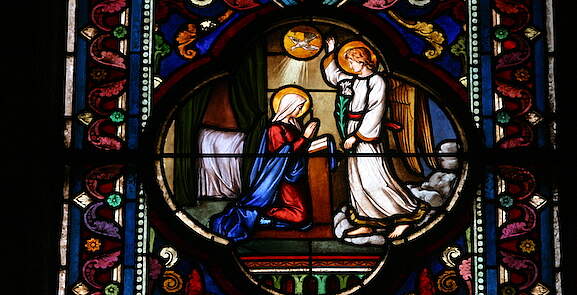
"In the sixth month, the Angel Gabriel was sent by God to a town of Galilee called Nazareth." Let us try to understand the role that Nazareth represents in the great mystery of God's plan.
God's messenger was sent to Nazareth: Salvation began in a village. One of the greatest secrets of God’s heart, at least the one that he most emphatically reveals to us, is that he passionately loves ordinary things and people. Possibly because he is the only one who truly sees the beauty of his creatures.
God likes to let his power—the extraordinary power of his love—work in mankind and in the human world without shaking up or disturbing anything. And it is this divine discretion of the Master of history that might make him seem absent or distant. In reality he is very present, actively, lovingly present, but so present that he does not need to impose his presence. This is why, with God, the beginnings are often modest: Gabriel came to a village ...
Too often, in our faith’s journey, we miss the reality of God, because we wait for it or seek it in the extraordinary, somewhere out of space, in a world disconnected from everyday life and it is we ourselves who create the feeling of God’s absence. What happens then is that God’s interventions disconcert us and his paths tend to confuse us. In reality it is not God who is absent, it is we who live "absent from him" (Saint Teresa of Avila). It is not God who goes away, it is we who have left Nazareth. It is not God’s hour that is delayed, but we who are no longer waiting for it.
In Nazareth, Mary had no other plan than to let God act and to find favor with him, in the praise of his glory. That is why, even though God’s message troubled her–since the outburst of his love is always overwhelming—her immediate reaction was this happy and obedient reply: "Behold the handmaid of the Lord, let it be done to me according to your word.”
Fr. Jean Lévêque, Carmelite friar from the Province of Paris
Homily on the Annunciation